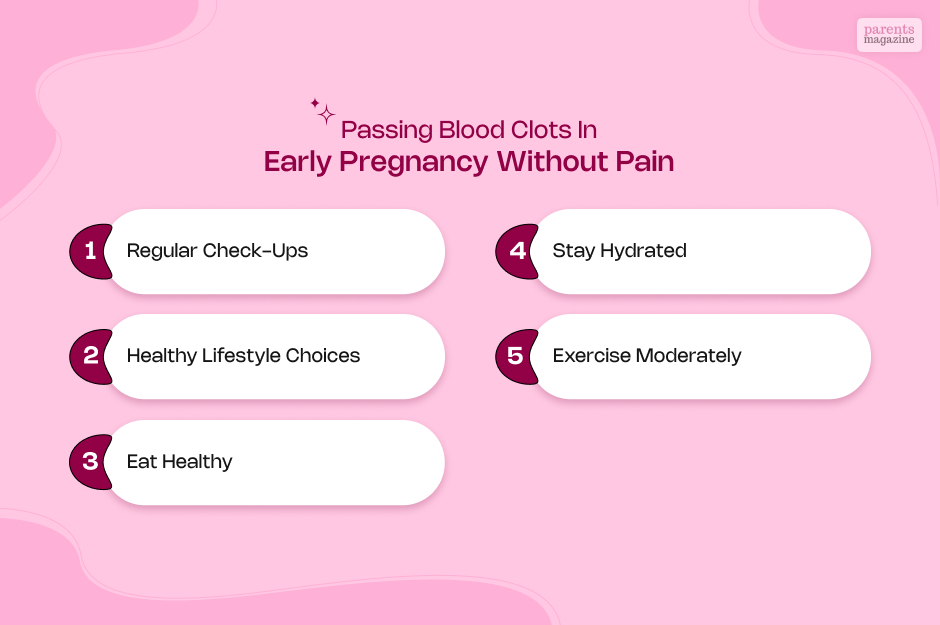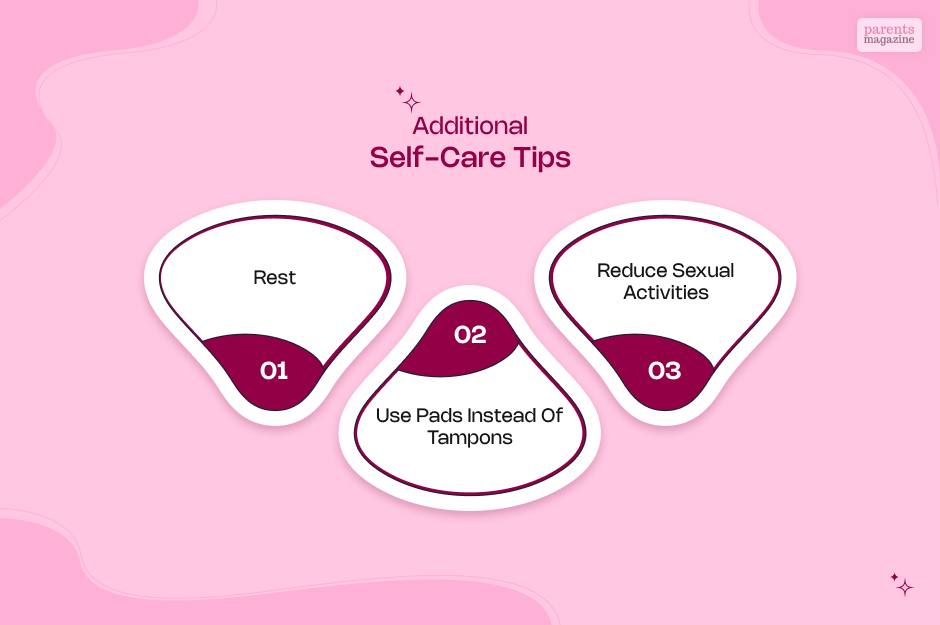
Understanding Passing Blood Clots in Early Pregnancy Without Pain: What You Need to Know
Choosing to have a baby is one thing. But going through the trauma of experiencing a new level of change in your body is something else altogether. Passing blood clots in early pregnancy with no pain can be concerning.
And the anxiety is REAL.
So, if you are experiencing the same, it’s common to wonder about the normalcy of facing that. Worry not if that kind of query has brought you to this blog post. We have some answers.
In this article, we have helped you understand what this can mean and how to navigate through it emotionally and physically. So, let’s start without any overthinking.
Is It Normal to Pass Blood Clots During Early Pregnancy?
Passing blood clots during pregnancy can happen during pregnancy, and there are several reasons behind it.
As per several studies, approximately 15-25% of pregnant women experience some type of bleeding during their first trimester. It can often include passing small blood clots in the early pregnancy phase.
Yes. Light bleeding or spotting is normal during the first trimester of pregnancy, and it may also contain implantation bleeding or cervical changes. But larger clots can also signal more serious issues to deal with.
If we aren’t leaving you with an open-ended answer, then the passing of a blood clot can have two different meanings.
- Normal occurrences.
- Signs of concern.
Now, how to differentiate between the two?
Normal Occurrences vs. Signs of Concern
Here’s what both types of examples look like –
Normal Occurrences
If you are experiencing light-passing blood clots in early pregnancy with no pain, then this may not be a cause of concern. This can happen when a woman is expecting her period. Or happen because of implantation bleeding when the fertilized egg attaches to the uterine lining.
Signs of Concern
However, if you are facing a heavy level of bleeding with severe levels of cramps or include large clots, it can indicate complications like miscarriage or ectopic pregnancy. In most of these cases, it may indicate the need for immediate medical attention.
So, now, you have your answer. It can either be something normal or have medical complications attached to it.
Understanding the Role of Pain

Pain is significant and one of the most important factors for assessing the severity of the bleeding during pregnancy.
While some of them face no pain when passing blood clots, the absence of pain cannot automatically suggest that everything’s fine. Yes, a lack of pain can suggest that the problem is less severe.
When Pain is Present!
When the pain is present or accompanies a heavy level of bleeding, it can signify other complications. Sometimes, symptoms like dizziness, heavy bleeding, and fainting are also accompanied by the passing of blood clots. If you are seeing any of these severe examples, it’s best to seek medical help.
When Pain is Absent!
The pain can also be absent when passing blood clots during early pregnancy. If that’s the case, consider contacting your healthcare provider ASAP. The situation may not be severe. But, they can help you understand the degree of compilations and necessary precautions.
Usually, they’ll run tests, and ultrasound to determine the reasons behind you passing the blood clots.
Managing Emotional and Physical Well-Being
If you are experiencing blood clots during the early phase of your pregnancy, it may cause a heightened sense of anxiety and emotional distress. Here’s how to cope with it –
Tips on How to Stay Calm
It’s not easy to cope with situations that are alarming with fear and anxiety. But here’s how you can get through it –
Educate yourself
First, understand what’s the normal signs of passing blood clots or spotting during early pregnancy. When you know how to differentiate between normal and difficult symptoms, it’s easier to stay calm. This is the best way to alleviate fear.
Practice Relaxation
The next step for keeping yourself calm during pregnancy is knowing and understanding your triggers. Also, practice mindfulness and deep breathing exercises to keep yourself healthy at all times.
Find Support
Here’s the final tip and the most important one. It would help to talk to your friends or people who conceived and went through the same phase in their lives. If something difficult happens, talk to your family and find support groups that would comfort and soothe you.
Importance of Open Communication with Healthcare Providers
The best way to navigate through such health challenges is by working with your healthcare provider. Talk to your healthcare provider when facing issues like these. Build a channel of open communication where you can feel free to discuss such health issues and run regular checkups and consultations.
They can help you monitor your health and provide peace of mind about the symptoms that aren’t too severe. Their support also stands when you are facing severe issues that require medical intervention.
Passing Blood Clots in Early Pregnancy Without Pain

However, maintaining a healthy pregnancy becomes a lot easier if you are maintaining routine checkups and a healthy lifestyle.
Here are some best practices to help you through issues like passing blood clots during early pregnancy –
Regular Check-Ups: it’s best to monitor your little one’s vitals and health through regular checkups. This way, you can keep track of your health and monitor the baby’s development as well.
Healthy Lifestyle Choices: eating a balanced diet rich in vitamins and minerals supports fetal growth. Incorporate foods high in folic acid, such as leafy greens, beans, and fortified cereals.
Eat healthy: Eat healthy and balanced food rich in vitamins, proteins, and minerals to support fetal growth and your body’s endurance during pregnancy. You can add beans, leafy green, and fortified cereals to the list.
Stay Hydrated: regularly drink water and other healthy drinks to keep your body hydrated throughout the day.
Exercise moderately: Take advice from your healthcare provider regarding exercising and maintain a moderate exercise routine. This will keep your vitals active and blood circulation healthy.
Additional Self-Care Tips

Pregnancy can take a toll on your physical and mental health. With issues like passing blood clots in early pregnancy, you may have to undergo medication depending on the severity of the situation.
However, that never means that the other ways of taking care of your health are out of the way. You can maintain the following personal care advice to feel better –
Rest: ensure that your body has plenty of rest. This helps you improve your pregnancy health condition significantly.
Use pads Instead of Tampons: it’s always better to use pads if you are experiencing bleeding during early pregnancy. Say not to use tampons and use pads instead. It increases
your chances of avoiding bacteria getting inside the vagina and cause other health hazards.
Reduce Sexual Activities: when experiencing bleeding during early pregnancy, it’s best to avoid sexual intercourse. This way, you can avoid introducing bacteria into the vagina. It helps to have clear communication with your healthcare provider about this.
When to Consult a Healthcare Provider?
Passing blood clots can be due to different reasons. But if you are seeing any of the following symptoms alongside, then always discuss with your healthcare provider first.
- Heavy Bleeding: If you soak through a pad in an hour or less.
- Severe Pain: Any intense cramping or abdominal pain that doesn’t subside.
- Accompanying Symptoms: Signs like dizziness, fainting, or fever should prompt immediate medical attention.
In general, when you have any concerns about your symptoms (either mild or severe), you should instantly consult with your doctor to have a clear understanding.
You May Like To Read This:
Already have an account?
Sign In
Create your account
User added successfully. Log in








